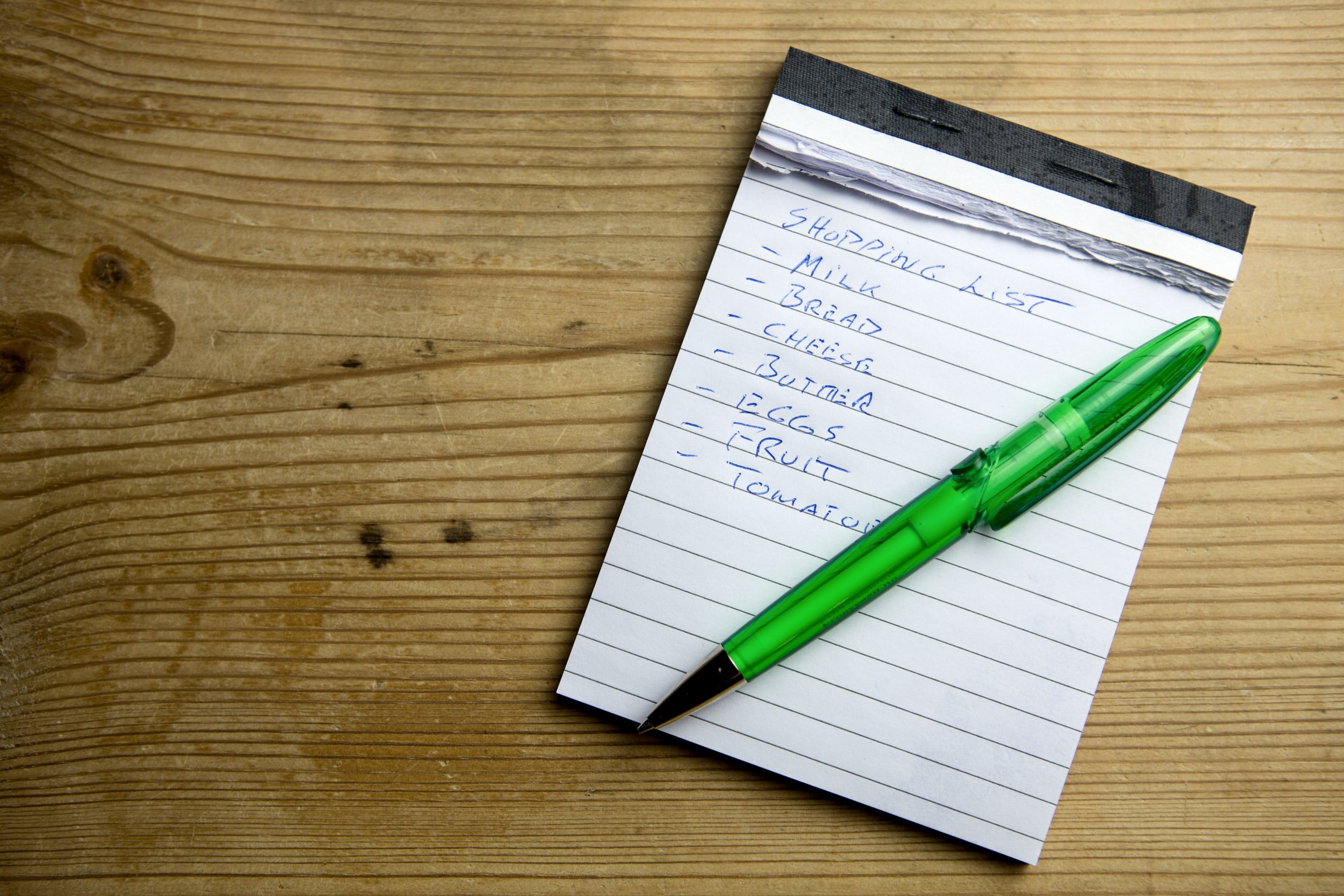Groceries & Budgets
Planning, budgeting, not blowing your whole month's budget in one grocery shop, how the heck do you even do that!?
A little disclaimer, although these tips and tricks will help scale back on your grocery bill, it is likely that you will feel like this is additional work for you, at least for the first little bit.
Some of these tips fall into the category of new habits, and well, new habits take time to feel seamless, so be patient with yourself and give yourself a moment to test these things out.
That said, the beauty of these tips is you don't need to implement them all at once; pick one suggestion from the list at a time, work on it until you feel comfortable and confident with it and then move on to the next step.
TIPS FOR SAVING ON GROCERIES:
Shop at home first, before you even start planning out what you are going to eat for the week, know what is in your pantry and fridge, and be sure to check that freezer. The freezer, for a lot of us, is where food goes to die of freezer burn. So stay on top of what you have, and not only will you be able to control your grocery bills a bit more, but you will also cut down on food waste.
PLAN PLAN PLAN! Map out what you are going to eat for the week, have an idea of snacks, breakfasts, lunches and dinners and WRITE IT OUT!!!! You don't need to know what every meal will look like, but having a general idea and at least knowing the type of protein you will be having will help you out.
Make a list. We've all tried to go to the store and get what we need without a list. When we do this, we either end up buying a bunch of stuff we don't need because it was "on-sale" to discover we have 10 of them at home already, OR we end up forgetting half of the things we needed. Make a list, bring that list, cross things off from that list.
Shop at home AGAIN. The first round of shopping at home lets you make food choices based on some of the items you already have at home. This second round of shopping at home is done with that grocery list to check for the herbs, spices, oils and smaller items to ensure you aren't over-purchasing.
Check prices and look for sales. Now coupon use could be a huge saver, or if you love to hunt for a deal, you're ahead of me. I typically check my loyalty card app (PC Optimum for me) to see what is on special or what will give me more points. Then I will also check the local flyer to see if anything I am buying or stocking up on is on sale, but I'll admit it, I'm horrible at using coupons. If I'm honest, this is one of my least favourite steps because I want to get it done, but it has saved me the most money.
Bring a calculator. You have a phone, and your phone has a calculator, so there is no longer reason to forget the calculator at home. This one can feel annoying at first, but the more you do it, the more it feels natural and easy. You have two ways to approach this; regardless of which of these works best for you, there shouldn't be any surprises at the till:
If you have already worked out your budget start with that number and subtract as you go, round up the prices of items to estimate for taxes.
If you don't have a budget worked out but don't want to be surprised, add up as you place things in the cart.
Those are my top 6 tips. Now here are two bonus tips to help save you some cash.
When possible, purchase the whole herb plant. For example, with the basil above, this entire plant is $4.00 vs a small package for $2.99, and if you have a green thumb, you can continue to propagate the basil, saving you even more money.
Check more than just the total price. Each item in the grocery store will have a cost per unit offered. These two items might not have a huge difference, but what I am trying to depict here is that the "cheaper" item isn't always the cheaper item. When these two are broken down to the same size until the "more expensive" product wins when it comes to saving money over time.
I hope these tips help you reduce your grocery bill and stay on budget for the month. If you have other suggestions, let me know, and I will be happy to share them!



